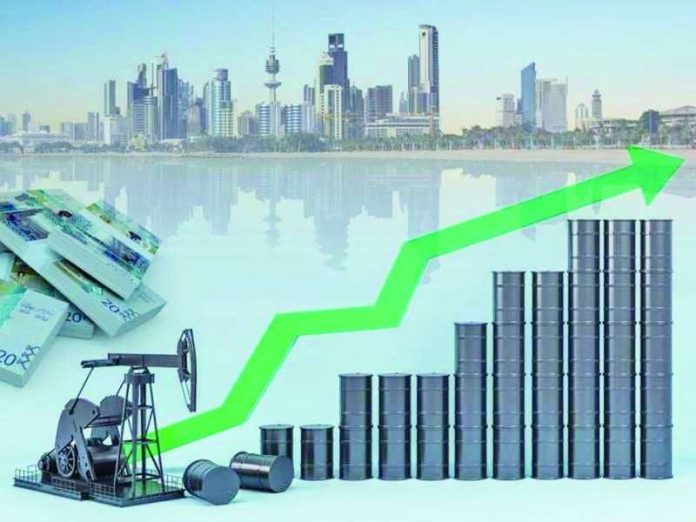The Banker magazine in an article it published recently begins with a question saying, ‘After the Kuwaiti economy recorded its largest contraction in 2020, since the Iraqi invasion of 1990, is it preparing this year to achieve its best performance in a decade, so what difference can a few years make?
A local Arabic daily quoting sources explained that the steady recovery in oil prices — whose exports represent about 90 percent of the Kuwaiti government’s revenues — made the government expect a significant reduction in the country’s deficit for the next fiscal year, even before the new price increases due to the Russian invasion of Ukraine, in addition to the decline of recent concerns about the lack of liquidity.
The Banker pointed out the rise in oil prices provides a temporary respite for the economic challenges in Kuwait, coinciding with the decline in the pandemic restrictions in light of the decrease in the number of infections and the improvement of business confidence in general, as companies listed on the Kuwait Stock Exchange announced an increase in their profits on an annual basis of 398 percent for the first nine months of 2021.
The magazine quoted Ali Khalil, CEO of the Financial Center Company, on his expectations that high vaccination rates, a strong recovery in oil prices, and an increase in government spending on infrastructure projects, along with reforms, would contribute positively to economic growth.
However, the magazine believes that the relief from the recent increase in oil prices may remain short-lived, given expectations that a correction in prices will occur at the end of the year. What’s more, recent increases may be counterproductive in the long run, reducing the incentive to make painful but necessary structural changes in a country’s economy.
Given that the Kuwaiti economy is the least diversified among the Gulf economies, Kuwait is considered the most vulnerable to fluctuations in oil prices, as was evident in the past two years. The country’s economy was most affected in the Gulf in 2020, when oil prices witnessed a decline to about $30 a barrel in the early stages of the Covid-19 pandemic.
In addition to a record deficit since the 2014/2015 fiscal, the collapse of oil revenues raised fears of a liquidity crisis, with the continuation of political paralysis that prevents the country from borrowing from international markets, but the Ukraine crisis pushed the price of a barrel of oil to more than $120, and this was accompanied by the rise fixed prices after vaccination campaigns in the world, and accordingly it is likely that Kuwait’s GDP will recover. According to Capital Economics, the country’s economy is expected to grow by 9.5 percent this year on the back of high oil.
For his part, James Swanston, an economist in the Middle East and North Africa at Capital Economics, suggested that oil prices will remain high during the coming months amid the war in Ukraine, despite the expectation that they will decline again at the end of the year.
The government expects oil revenues to increase for the next fiscal year 2022/23 by 83.4 percent to 16.7 billion dinars, based on an average price of $65 a barrel — about half the barrel trading price in early March due to concerns about the ongoing war in Ukraine.
According to a law passed in 2020, the government will not transfer 10 percent of oil revenues to the Future Generations Fund as usual, as the current account is still suffering from a deficit.
Swanston believes that this would greatly help Kuwait in alleviating concerns about the liquidity of public finances with the government.
Crucially, the government expects the additional oil revenues to reduce the state’s general budget deficit, which amounts to about 12.1 billion dinars, by 74 percent next year.
With oil prices above the budgeted $65 per barrel, government finances may be in a position to return to surplus by the end of the fiscal year, Khalil said.

















